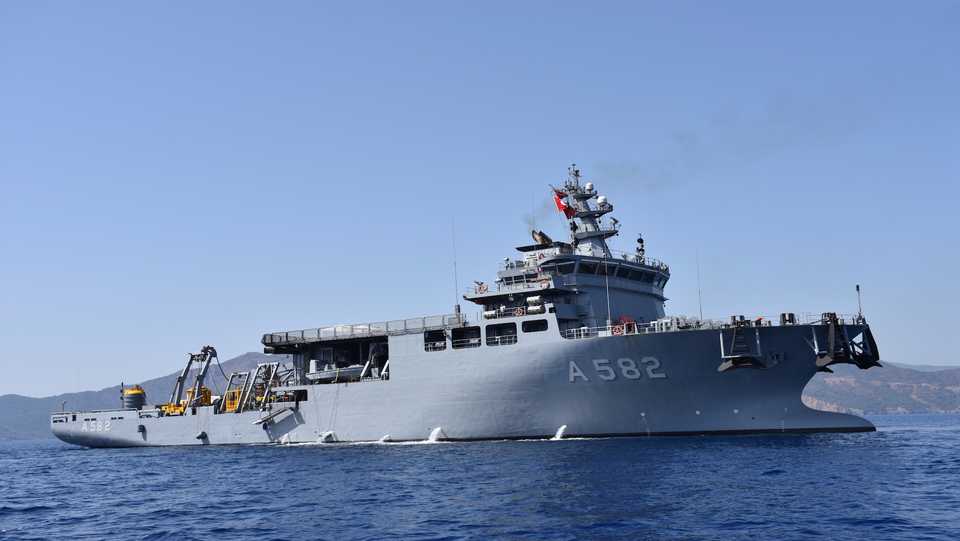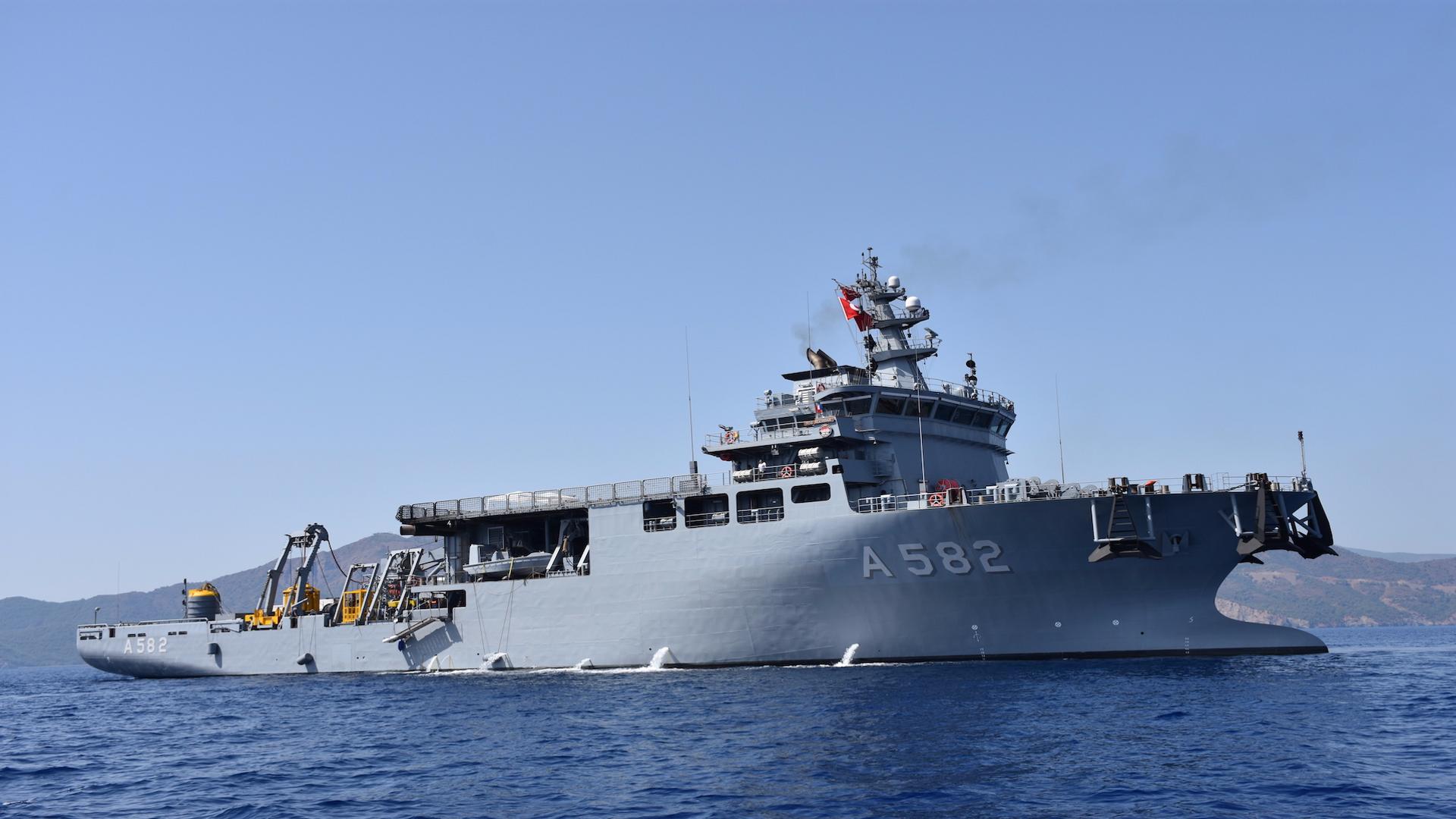
Nearly two-weeks of naval exercise by NATO focusing on submarine rescue operations ended on Friday.
The military drill was held amid tensions between the first and second biggest army of NATO, the US and Turkey, after Ankara decided to buy S-400 missile defence systems from Russia at a cost of around $2.5 billion.
The drill, called the “Dynamic Monarch,” took place in Turkish waters in the Mediterranean Sea off the resort city of Marmaris and involved 1,000 personnel from nine countries including France, Britain and the United States.
The drill, the first in Turkey since the year 2000, aimed at demonstrating multinational submarine rescue cooperation and inter-operability. But its hosting by Turkey is also a symbol of Ankara’s importance within the alliance during a period of high tensions the world.
“I would just recognise that the Turkish navy have consistently continued to be one of the greatest supporters of my command,” said the head of the NATO maritime force, Vice Admiral Clive Johnstone.

Turkey’s important role in NATO
A NATO official, who spoke under anonymity to AFP, added: “Turkey is essential for the security of Europe. It has NATO’s second largest army and makes an important contribution to the alliance including our missions in Afghanistan, Kosovo and the Aegean Sea.”
Turkey is one of NATO’s key members, having joined in 1952. However, its relations with several key alliance members have deteriorated.
The EU, especially Germany, accuses Turkey of undemocratic governance following a failed coup on July 15, 2016. Turkey accuses the EU of protecting suspects allegedly involved in the attempt to undermine Turkey’s democracy by way of the military coup as well as failing to take measures against the PKK, a listed terrorist organisation that has waged a decades-long armed campaign against the Turkish state.
Ties with the US meanwhile have been hurt by Washington’s support for the YPG, which Ankara regards as an extension of the PKK, and for not extraditing Fetullah Gulen, a self-exiled congregation leader who has been living in the US since 1999. Gulen is blamed by Ankara for instigating last year’s attempted putsch, but he denies any involvement.

S-400 defence systems
NATO officials warned that inter-operability of equipment was crucial between alliance members but Turkish President Recep Tayyip Erdogan has put aside the criticism.
“Turkey is their ally, Turkey is in NATO but it can’t buy weapons from its allies. How can this be explained? We have to deal with this. And we are swiftly continuing our negotiations and common working,” Erdogan said at a business forum in the US.
Analysts have however warned that despite the signing, thorny issues still need to be resolved before delivery, including Turkey’s demand for technology transfer and Russia’s order backlog for the hardware.










Discussion about this post